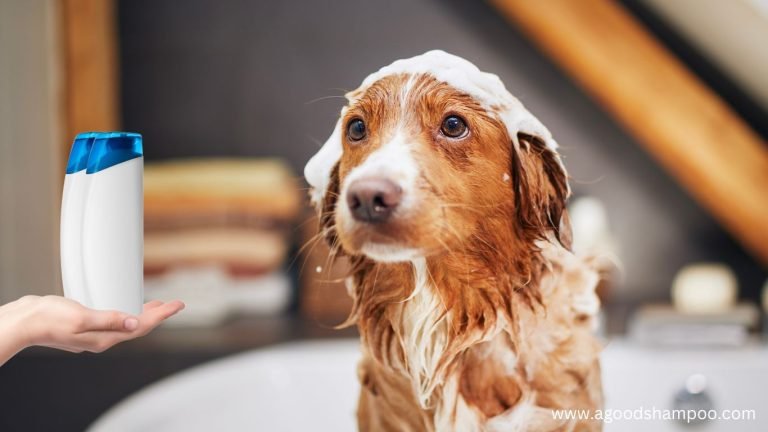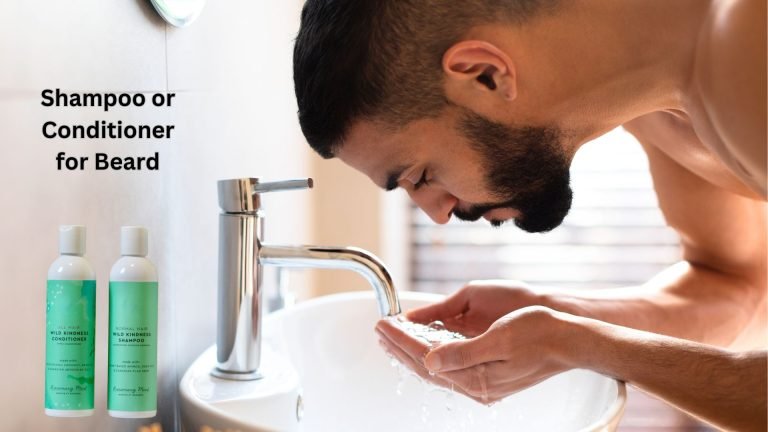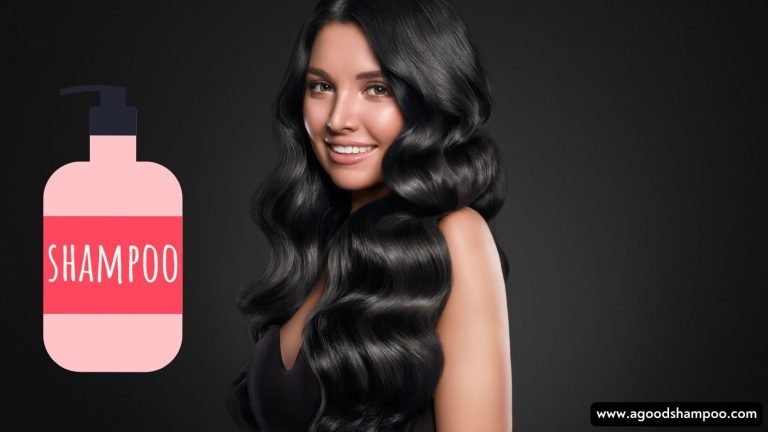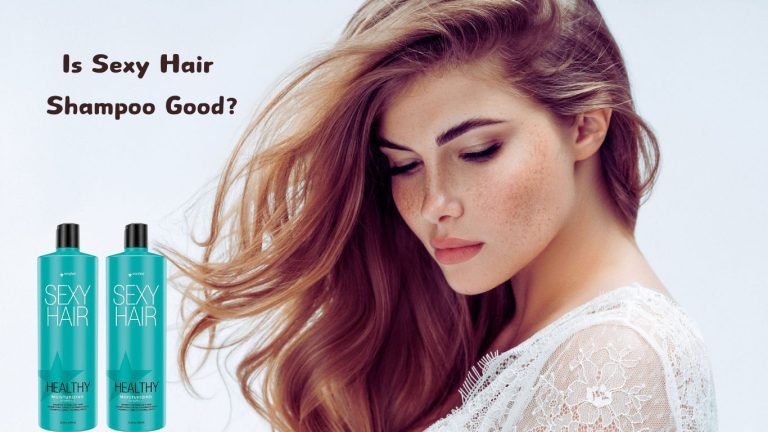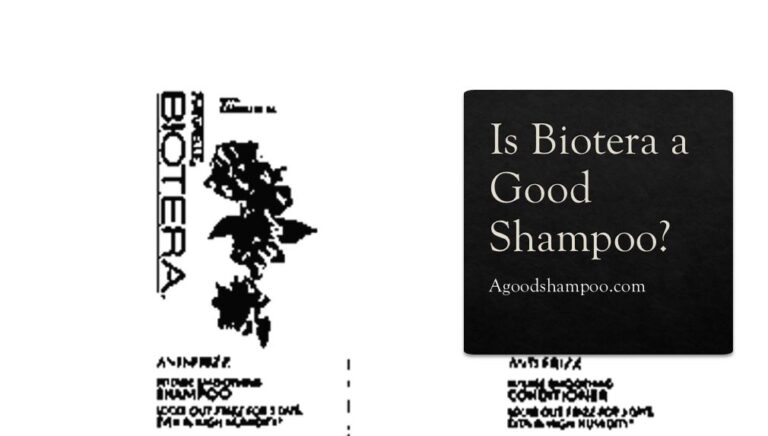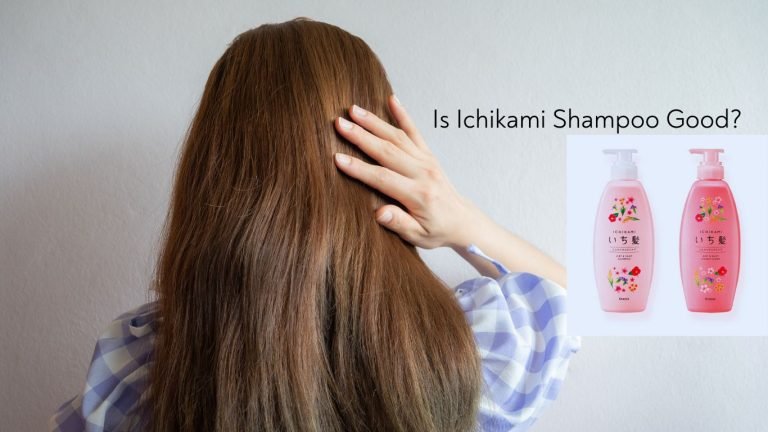Is Head Shampoo Good for Beard? Expert Guide to Safe Beard Care
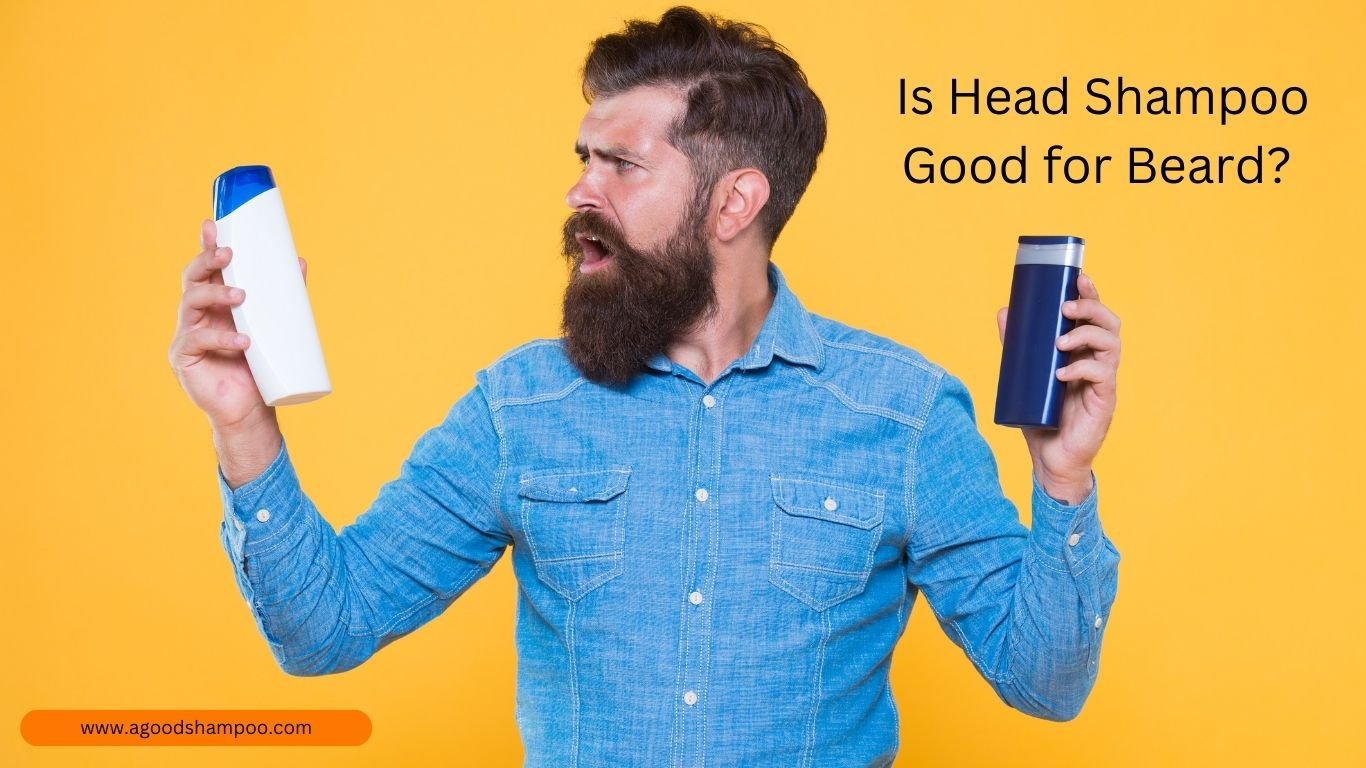 Let’s be real, when most of us started growing facial hair, beard care probably wasn’t top of mind. The beard was new, exciting, and honestly, a little intimidating. So naturally, many guys just reached for the same shampoo they used on their head and figured, “It’s all hair, right?”
Let’s be real, when most of us started growing facial hair, beard care probably wasn’t top of mind. The beard was new, exciting, and honestly, a little intimidating. So naturally, many guys just reached for the same shampoo they used on their head and figured, “It’s all hair, right?”
But here’s the thing: head hair and beard hair may both be hair, but they’re not identical twins. They’re more like cousins with different personalities. What works for your scalp doesn’t always work for your face. And that’s where the question comes in, is head shampoo actually good for your beard, or is it quietly sabotaging your facial fuzz?
I’ve spent years testing shampoos, analyzing ingredients, and working with both scalp and facial hair health. Today, I want to break this down for you in plain, no-BS language so you can actually enjoy having a beard instead of battling dryness, itch, or dandruff flakes all over your shirt.
Why Beard Hair Is Different From Head Hair
Your beard is a special kind of hair called androgenic hair. It grows under the influence of testosterone and DHT (dihydrotestosterone), which is why it’s thicker, curlier, and often feels coarser than the hair on your scalp.
Now, that’s not just a texture issue, it’s also about the environment. Your scalp has thousands of sebaceous glands producing natural oils that help lubricate hair. Your face, on the other hand, has far fewer oil glands in the beard area. That’s why beards dry out faster, feel wiry, and can get itchy.
So when you use a regular head shampoo, especially one packed with sulfates, you strip away the little bit of natural oil your beard does have. That’s when the problems start:
Dry, brittle beard hairs that feel rough
Itchy, irritated skin underneath
Beard dandruff (a.k.a. “beardruff”)
Breakage or patchiness in growth
This is why beard-specific washes exist. They’re not just a marketing gimmick; they’re actually formulated to respect the fact that your face isn’t your scalp.
Can I Use Head Shampoo on My Beard?
Technically, yes, you can. But should you? That’s another story.
Head shampoos are designed with the scalp in mind. Most contain stronger detergents to remove sweat, sebum, and styling products. While your scalp can handle that kind of cleanse (thanks to its oil production), your beard area often can’t.
Here’s what usually happens if you make head shampoo your beard routine:
Short-term: Your beard feels squeaky clean, soft for a day, maybe even manageable.
Long-term: The skin under your beard starts drying out, itching increases, flakes appear, and the beard hairs themselves weaken.
So while using head shampoo in a pinch won’t kill your beard, relying on it regularly can slowly sabotage your beard health.
Can I Use Dandruff Shampoo in My Beard?
This one comes up a lot, especially if you’ve noticed flakes. Let’s clear it up: yes, dandruff shampoos can be used on beards, but with some caveats.
Most dandruff shampoos (like Head & Shoulders or Nizoral) contain active antifungal or antimicrobial ingredients. These fight Malassezia yeast, the main culprit behind dandruff. And guess what? That yeast can live in your beard area too, leading to beardruff.
What Research Says
Studies show that ingredients like zinc pyrithione and ketoconazole can reduce fungal growth and flaking not just on the scalp, but on facial hair areas too. Dermatologists sometimes even prescribe dandruff shampoos for beard seborrheic dermatitis.
The Catch
These shampoos are medicated and often drying. Using them every day can strip your beard’s natural oils and worsen irritation.
Best approach: Use dandruff shampoo 2–3 times a week if beardruff is an issue, and alternate with a gentler beard wash on other days. Always follow with a beard oil or moisturizer to keep skin calm.
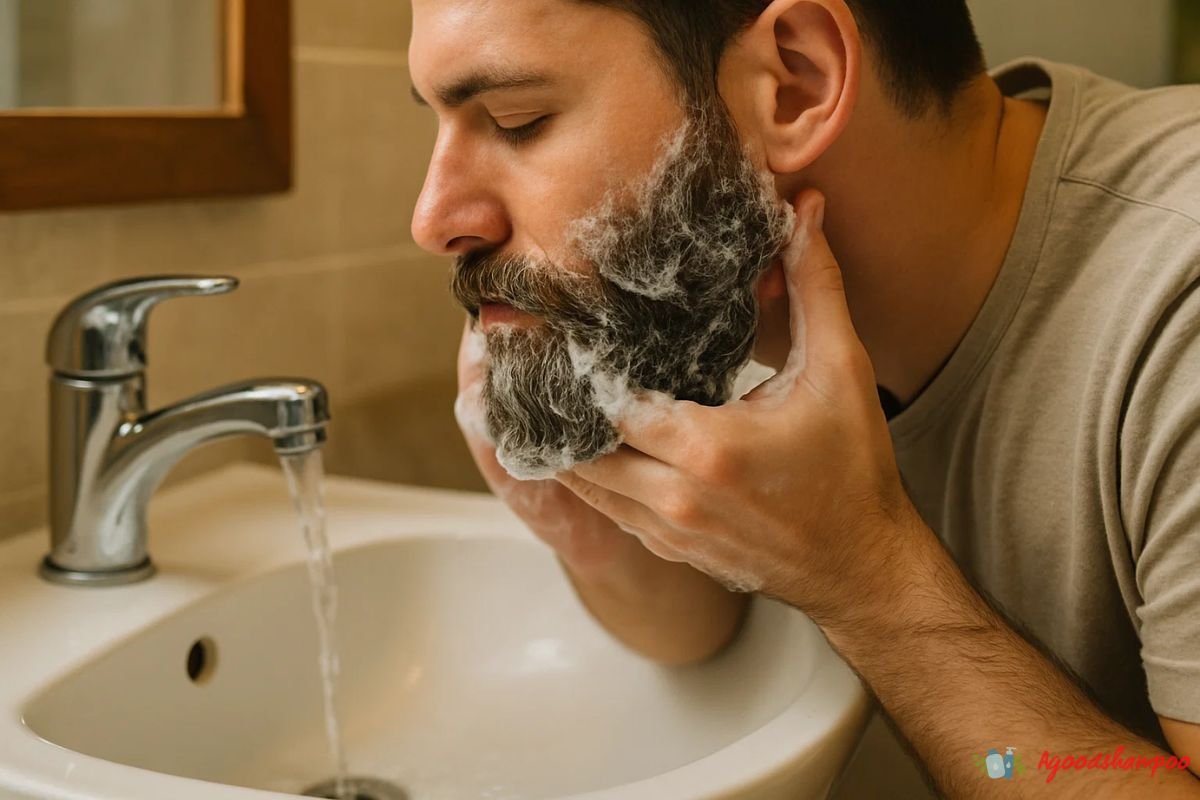
Does Hair Growth Shampoo Work on Beards?
This is where a lot of myths swirl around. Hair growth shampoos are typically marketed for scalp thinning and hair loss. They may contain ingredients like:
Biotin – supports keratin production (but works better orally than topically).
Caffeine – claimed to stimulate hair follicles.
Ketoconazole – fights inflammation linked to hair loss.
Saw Palmetto – thought to block DHT on the scalp.
Here’s the truth: most of these shampoos are designed for scalp follicles, not beard follicles. Beard hair growth is driven more by hormones (testosterone/DHT) than by topical ingredients.
So no, hair growth shampoos won’t magically fill in your patchy beard.
At best, they may make the beard hairs you already have a little stronger and healthier-looking. But if your genetics say you can’t grow a full Viking beard, no shampoo will change that.
Can I Use Hair Products in My Beard?
Another common question, and the answer depends on the product.
Hair conditioner? In a pinch, yes. Just rinse thoroughly and avoid heavy silicones that might clog pores.
Hair oils/serums? Be careful. Many are too heavy or contain synthetic fragrances that can irritate facial skin. Beard oils are usually lighter and made with skin-safe carrier oils like jojoba or argan.
Styling gels/waxes? Avoid using regular hair gel in your beard. It can flake, harden, and irritate the skin. Beard balms or butters are made to hold shape without the irritation.
Rule of thumb: if it’s formulated for the scalp, check the ingredient list before putting it on your face. Beard skin is much more sensitive.
Ingredient Breakdown: Why Most Head Shampoos Don’t Work for Beards
Let’s geek out for a minute and look at what’s inside your average head shampoo versus a beard wash.
| Ingredient Type | Found in Head Shampoo | Found in Beard Wash | Effect on Beard |
|---|---|---|---|
| Sulfates (SLS, SLES) | Common | Rare | Harsh cleansing, strips oils |
| Silicones | Common | Sometimes (lighter ones) | Can coat hair but clog pores |
| Antifungal actives | Sometimes (dandruff shampoo) | Rare | Helps beardruff, but drying |
| Moisturizers (glycerin, aloe, shea) | Occasional | Common | Hydrates coarse beard hair |
| Oils (jojoba, argan, coconut) | Rare | Common | Mimics skin’s natural oils |
This is why beard washes often feel gentler and leave your beard softer, they’re designed with moisture and skin comfort in mind.
Quick Fact Box
Fact: Over 60% of men experience beard itch during the first month of growth, and most cases are linked to dryness from improper cleansing. (Journal of Dermatological Treatment, 2019)
What Dermatologists Recommend
Dermatologists generally agree on a simple principle: treat your beard more like skin care than just hair care. That means:
Gentle cleansing: Use a sulfate-free beard wash 2–3 times a week.
Targeted treatment: If dandruff is an issue, spot-treat with dandruff shampoo.
Moisture support: Apply beard oil or balm daily.
Sun protection: Don’t forget your beard skin still needs SPF if exposed.
My Personal Testing Experience
I’ve personally tested dozens of head shampoos on beards during ingredient analysis work. Here’s what I’ve noticed:
Classic drugstore shampoos (think Pantene, Tresemmé, Head & Shoulders) almost always left beard hairs stiff, wiry, and dry after a week.
“Moisturizing” head shampoos helped a little but still lacked enough skin nourishment.
The only time head shampoos made sense was when dandruff treatment was needed, and even then, alternating with beard wash was key.
On the flip side, when switching men to beard-specific washes plus oils, the difference in softness and reduced itch was visible within 10 days.
A Smarter Beard Care Routine
If you want a healthy, soft, flake-free beard, here’s a simple 3-step routine:
Wash – Use beard wash 2–3 times per week. If beardruff, add dandruff shampoo twice a week.
Moisturize – Apply beard oil (argan, jojoba) daily after washing or showering.
Style/Protect – Use beard balm or butter for shape and extra nourishment.
Is Head Shampoo Good for Beard?
The honest answer: not really. It won’t destroy your beard overnight, but it’s not doing it any favors either. Beard hair is coarser, drier, and needs a gentler touch than scalp hair.
Regular shampoos strip too much.
Dandruff shampoos can help beardruff, but sparingly.
Hair growth shampoos don’t boost beard growth, genetics and hormones run the show there.
Hair products? Some are okay, but beard-specific ones are safer bets.
So if you’re serious about keeping your beard soft, healthy, and itch-free, invest in a proper beard wash and oil. Your face (and anyone who touches your beard) will thank you.

Carolina Herrera: Cosmetics specialist & Hair Analyst. Specializing in hair treatments, Carolina provides thorough reviews and advice on choosing the best products for damaged or treated hair.

